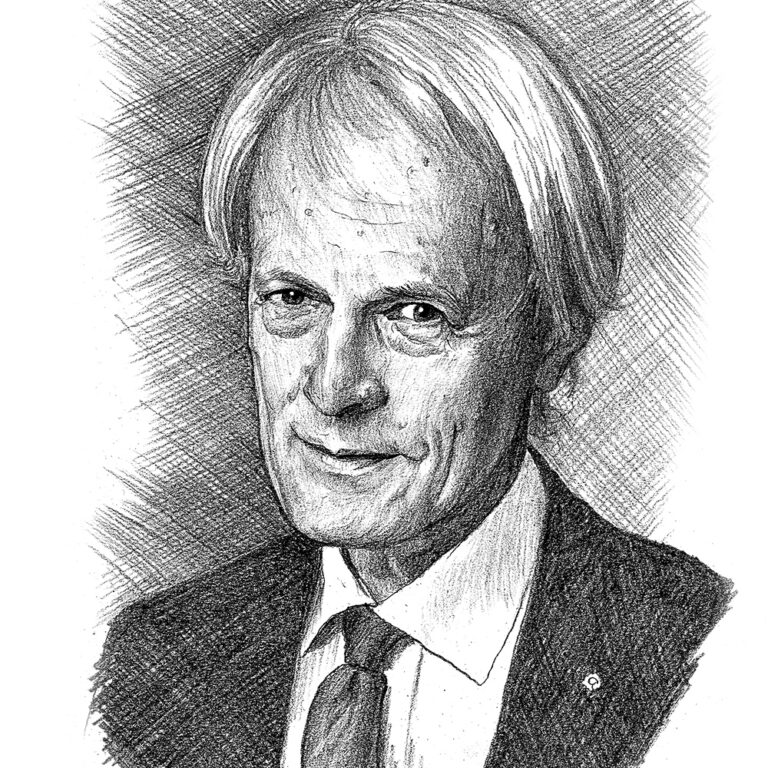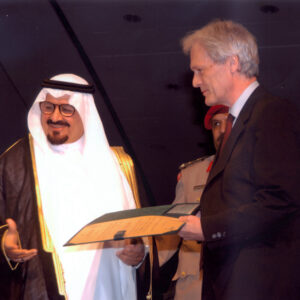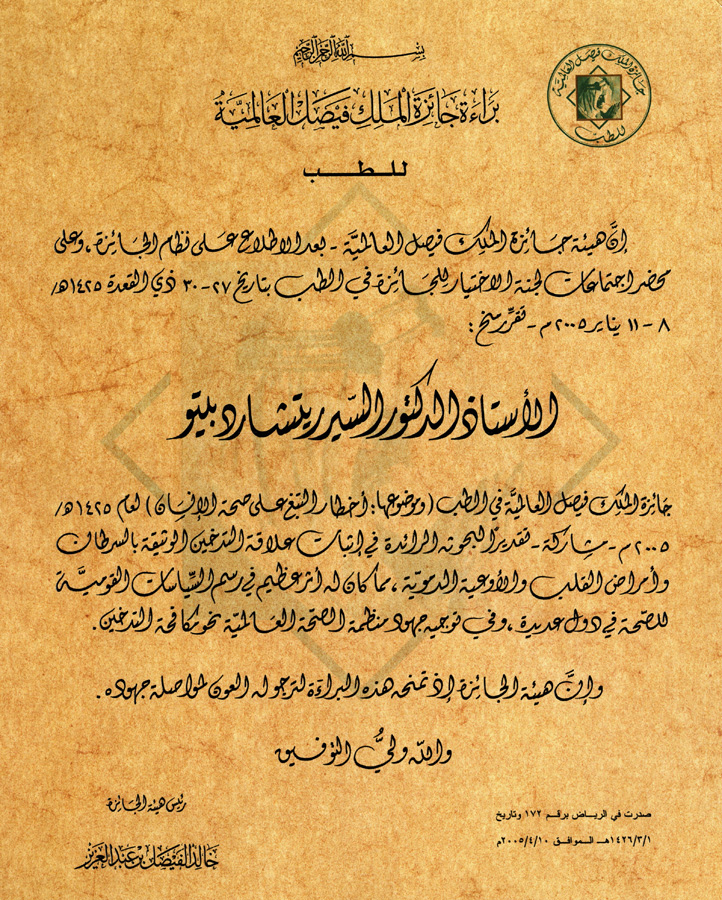

Professor Sir Richard Peto
King Faisal Prize in Medicine 2005 Laureate
Topic: "Tobacco Risks on Human Health "
Most cancer research was concerned with treatment rather than prevention… the situation was ripe for change, and we were fortunate to be able to help it change

Richard Peto studied natural sciences at Cambridge University and statistics at the University of London. After working for two years at the MRC Statistical Research Unit in London, he moved with Professor Sir Richard Doll in 1969 to Oxford. He is currently a Professor of Medical Statistics and Epidemiology and a Co-Director of the Clinical Trial Service Unit (CTSU) at Oxford.
Professor Sir Richard Peto is one of the world’s leading epidemiologists. His work included studies of the causes of cancer in general, and of the effects of smoking in particular. He helped establish large-scale randomized trials of the treatment of cardiovascular diseases, stroke, breast cancer and other conditions and his work was instrumental in introducing combined ‘meta-analysis’ of results from clinical trials. For more than 30 years, he worked alongside Professor Doll on elucidating the detrimental effects of tobacco. Together, they made the best known and the most consistently productive tobacco epidemiologists in the world. Their scientific contribution to this field was matched only by their ability to communicate their results with simple and effective messages that the public can understand.
In addition to his partnership with Doll in the cohort study on British doctors, Professor Sir Richard Peto initiated a series of very large studies of tobacco, blood pressure, obesity, and death in China, India, Cuba, Egypt, and Mexico. These studies, which involved retrospective investigations of the smoking habits of more than a million dead people and interviews with more than two million people, clearly showed that tobacco was already causing even more deaths in developing countries than in developed countries and that the health risks of smoking will continue to rise. Peto’s landmark study with Alan Lopez (WHO, Geneva) concluded that about one billion people were likely to die of conditions associated with tobacco in the 21st Century if current smoking patterns persisted. In recent years, Peto extended his research to reveal the beneficial effects of smoking cessation. His ongoing international studies are having a major impact on health policies internationally.
Professor Peto published hundreds of papers and reviews in leading scientific journals and conference proceedings. His scholarship is widely recognized; he received numerous other prizes, honorary degrees, fellowships, visiting professorships, named lectureships, and memberships of academic institutions and learned societies both in the U.K. and abroad. He was elected a Fellow of the Royal Society of London and was knighted by Queen Elizabeth II in 1999 for his services to epidemiology and cancer prevention.
This biography was written in the year the prize was awarded.
- He was appointed an Emeritus Professor of Medical Statistics and Epidemiology at the University of Oxford.
- He received many awards and honors including:
- Lifetime Achievement in Cancer Research Prize in 2010.
- MBJ Lifetime Achievement Award in 2011.
- Honorary Doctor of Medical Sciences degree from Yale University in 2011.


